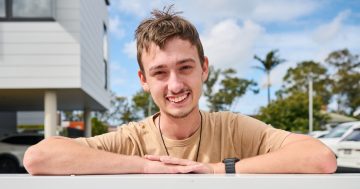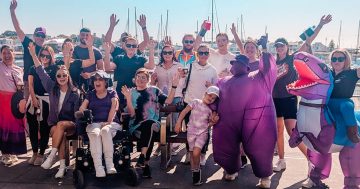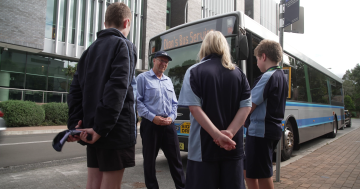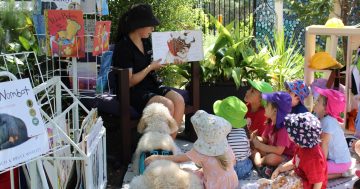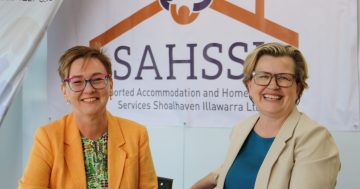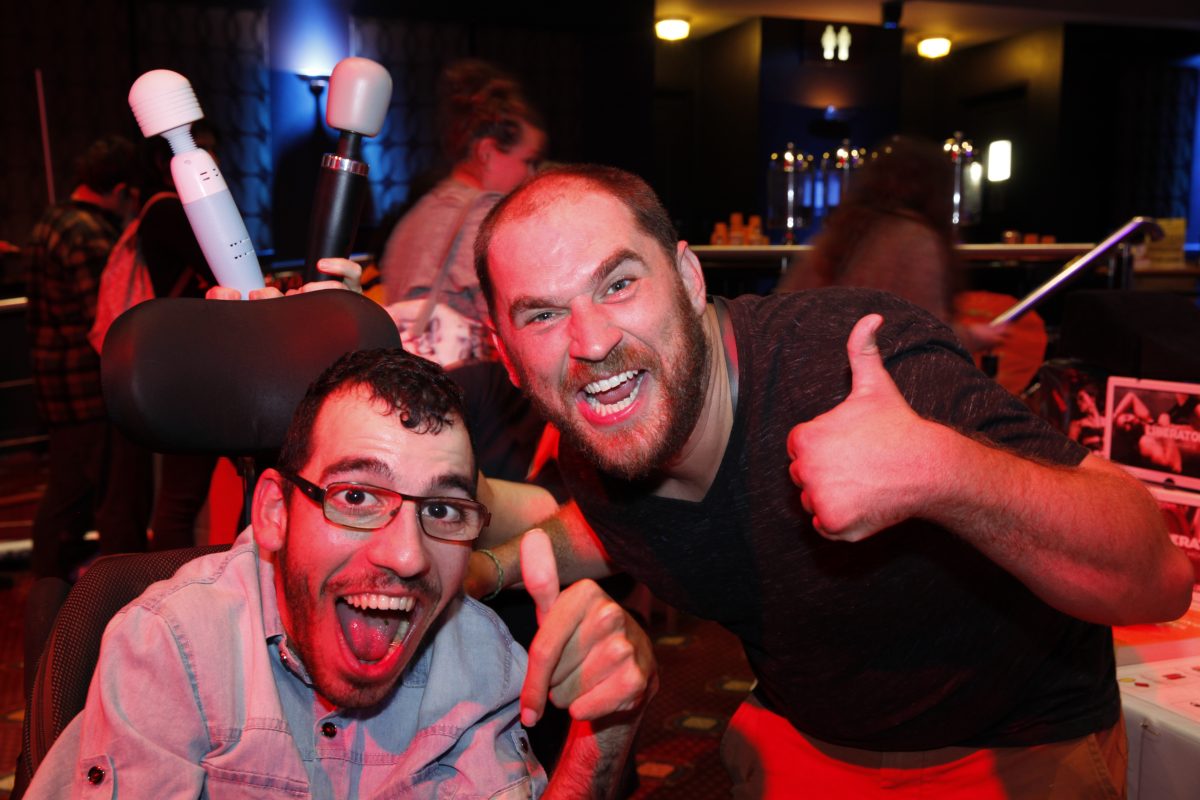
Feel the Vibe Expo is breaking down barriers and empowering people to discuss sexuality and disability. Photos: Northcott Disability Services.
An interactive, engaging and accessible event in the Illawarra will lift the lid on taboo topics in a bid to break down barriers around sexuality and disability to promote positive, safe and inclusive experiences.
It can be an uncomfortable conversation for anybody, but for people with disability, discussion about sex and engaging in healthy relationships is a vital human right that is often overlooked.
Northcott Disability Services is one of the first Australian providers to facilitate these important discussions through its Sexuality and Relationship Education Service.
Clinical lead counsellor Amanda Damian said attitudes and approaches to the subject needed to change.
“People don’t think people with disability have sexual urges so they’re just forgotten about,” Ms Damian said. “There’s a big thought process that people with disability are asexual, or they don’t have capacity to consent, so because of that a lot of the time they don’t receive any sex education at all and that just leads to a lot of human rights violations and it also comes out in sexual behaviours of concern.
“Even now it is still happening in high schools where they do sex education and they actually pull people with disability out of the room so they’re not involved in the normal mainstream class.”
The alarming impact of this neglect is evident in Northcott’s group education sessions, in which Ms Damian asks the participants where they first learned about sex.
“Most of the time I will get two people in the group that say their first experience learning about sex is when they were assaulted, two of them will probably say TV shows,” she said.
“Sexuality is something that is innate to everyone, everyone has those urges, so not talking about it does not make those urges go away. It just makes things really confusing and really, really unsafe.”
Now, myths and misconceptions will be broken down at the Feel the Vibe expo which will bring together different organisations, experts and panelists for a night of important conversations combined with exciting entertainment and experiences.
“It’s also really important that we have interactive stalls because people have different communication needs; some people may really like listening to a presentation for 20 minutes, some people may need more hands-on fun activities to be able to understand the concept, so it’s really important that we have a good variety just to make it accessible for everyone,” Ms Damian said.
The event is free and accessible through Auslan interpreters, audio agendas and sensory spaces.
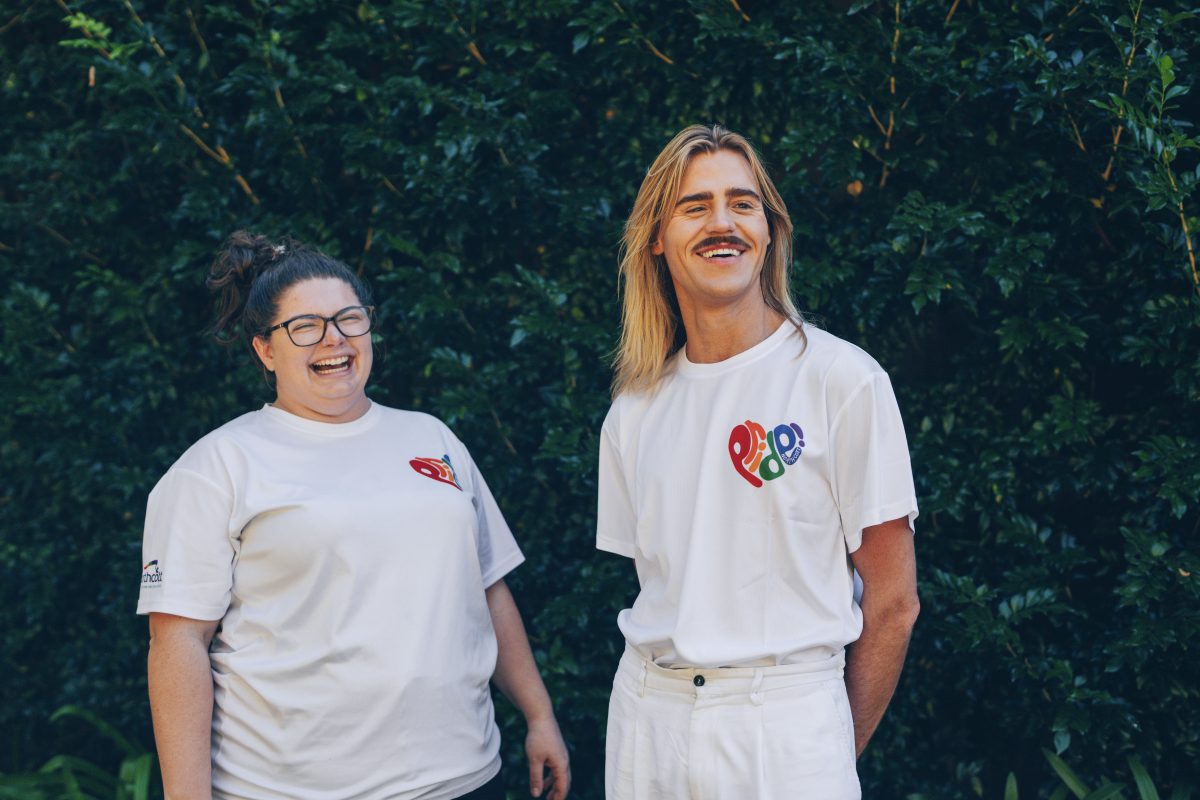
Northcott’s Sexuality and Relationship Education Service clinical lead Amanda Damian and counsellor Patrick Hukins will be presenting and facilitating talks at the event.
And topic talks will cover issues such as ableism, unconscious bias, infantilisation and dating, with sexuality and relationship counsellor Patrick Hukins hosting an uncensored panel for people with disability to share their first-hand experiences.
“There will be a lot of experts in the field talking about a range of topics from the nitty-gritty of sex to engaging in relationships and the supports out there in the disability community that can help them do that,” Mr Hukins said.
“At the end of the day the people experiencing this are the people with disability, they’re experiencing the struggle day-to-day firsthand, so while I can quote literature and academia on this issue and statistics out there that it has on domestic violence and risk of abuse and neglect, I think it is much better to hear it from people with the lived experience.”
But Northcott’s mission is about more than just one day.
The organisation advocates and is committed to helping workers within the NDIS create more people-centred care and better assist those who require support in intimate or sexual situations.
“When support workers are either not comfortable or trained in supporting their clients in filling that need, not only does it deny them the right to be intimate with other people but it can also be really shaming and have a lifelong impact,” Mr Hukins said.
And encouraging family members to have those difficult talks.
“It’s through having these conversations and educating and normalising these things that your child is actually going to be safer,” Mr Hukins said.
“Not talking about it doesn’t make it disappear; if you’re scared about maybe your daughter going and meeting someone so you never have that conversation with her because you’re scared that she’ll be taken advantage of that doesn’t mean that she’s never going to meet someone, that just means that you’re not going to know about it,” Ms Damian said.
Northcott has become more integrated in the Illawarra’s disability sector, with other services offered including support for school leavers and training in life skills, with many programs guided by participants to maximise impact.
“To equip them to actively engage with their community, build their independence in a number of areas, so that could be building and maintaining positive relationships, support in the home environment, working towards getting a job, sport and recreation, whatever that person wants to acquire the necessary skills we’ll work alongside the person,” Illawarra service manager John Wood said.
A new hub at Dapto is set to bring the services currently available at Oak Flats and Wollongong under one roof and make them more accessible to community members who need them.
“The organisation is really investing in the community here in the Illawarra and with the new hub it’s just going to be a great environment for providing a service to a number of people with varying degrees of disability,” Mr Wood said. “I think we’re really well equipped and really well positioned to expand that service and provide more support to people with a disability, whether that be intellectual, psychosocial or high complex needs; we’re really well positioned to provide that support.”
The Feel the Vibe Expo runs from 5 to 10 pm on Thursday (2 November) at The Grange at Kembla Grange, with free tickets available through Eventbrite.
To find out more or to enquire about the organisation’s services, visit the Northcott website.









